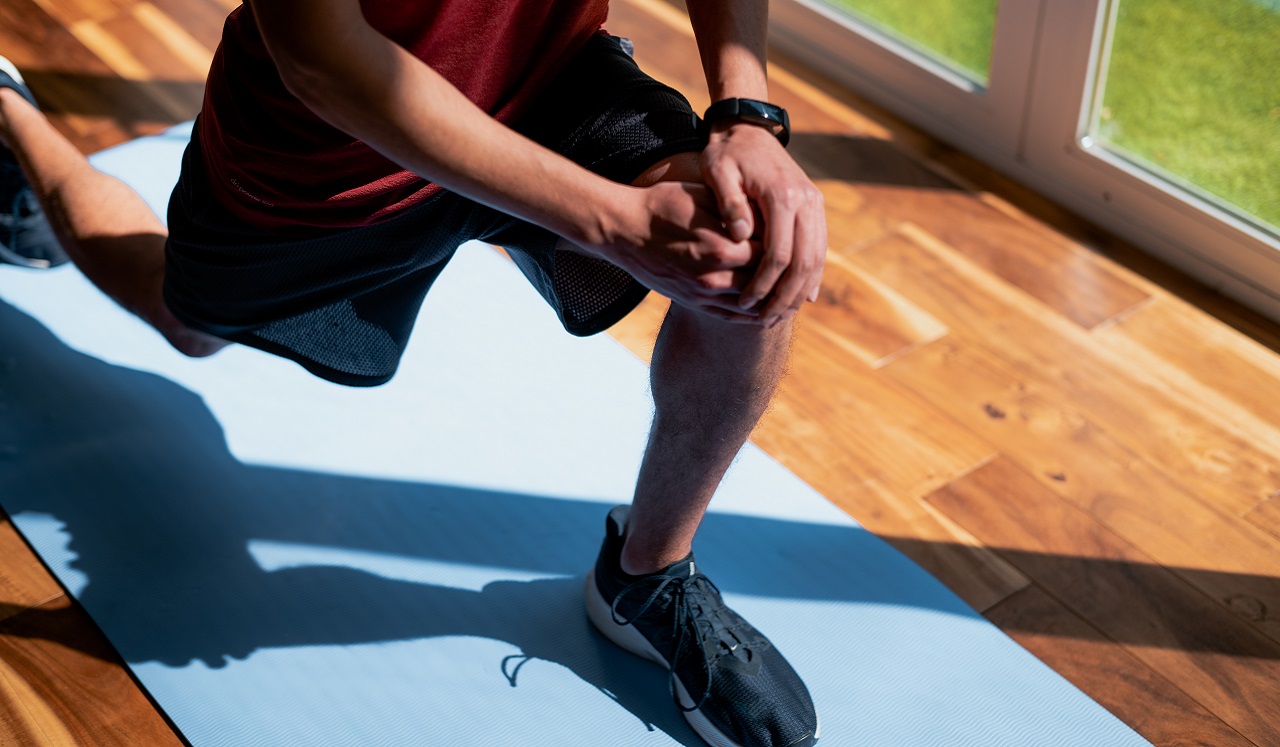The commotion about motion may be worth the effort—but who has the time?
“Exercise is one of the greatest medicines we have,” says Dr. Christopher Anyakorah, MD, MPH, family medicine and primary care physician at Memorial Hermann Medical Group (MHMG) Central Pearland. “We can use it to help with many of the chronic issues we have as humans.”
When you make motion your mantra, payoffs can be huge: weight loss, strength and endurance. Physical activity also can fight and prevent diabetes, obesity, hypertension, high cholesterol, lung disease and heart disease, he says.
Movement is also a mood lifter that helps relieve stress and anxiety.
Dr. Anyakorah—an advocate for physical activity who practices what he preaches—prescribes walking, bicycling, stair-climbing and other movements for 20-30 minutes daily and at least 150 minutes combined weekly.
Here are his top tips for adding action to your daily routine, no matter how busy you are:
Invest in an exercise tracker.
You’ll find that apps and wearables are great motivators and reminders to get up and get moving. In fact, some devices buzz you hourly to urge you to be active. Begin with a goal to take 250 steps or more every hour and increase from there if you’re able.
“Your body is designed to move,” Dr. Anyakorah says. “The more you move, the longer you may be around for your family.”
Be Roundabout.
Take stairs instead of elevators. Walk the longest route rather than shortest distance to the coffee machine and try to add steps when you retrieve your mail.
Leg it to work.
“If you live close to your office, you could walk or take a bicycle from home to work,” Dr. Anyakorah says. And if you drive, consider parking farther away from the door.
Tailor activity time to you.
Create a routine that works for you. You could walk, bike, stair climb or hike at the pre-specified time. What suits you best? The choice is yours.
Schedule walks and talks.
Make movement your mantra. As suggested and practiced by Dr. Anyakorah, take a stroll while connecting with your friends and family on the phone. Make it a routine and commit to a time on your calendar.
Buddy up.
Pairing up or working doing physical activity with a friend can be motivating. “When your friend texts, ‘Hey, I’m at the gym,’ knowing that someone is waiting keeps you accountable even if you may not feel like going,” Dr. Anyakorah says.
Besides, shared activity can sometimes be more fun. “Try to make exercise social,” he says. “It’s a great way to catch up with a friend or family member while also relieving stress.”
Take it up a notch.
Working with a personal trainer or spin instructor or participating in a workout bootcamp can push you through a workout at a higher intensity than you might have had otherwise, he says.
Take note.
Keeping a journal of your goals and your achievements can encourage you and help you to hold yourself accountable.


